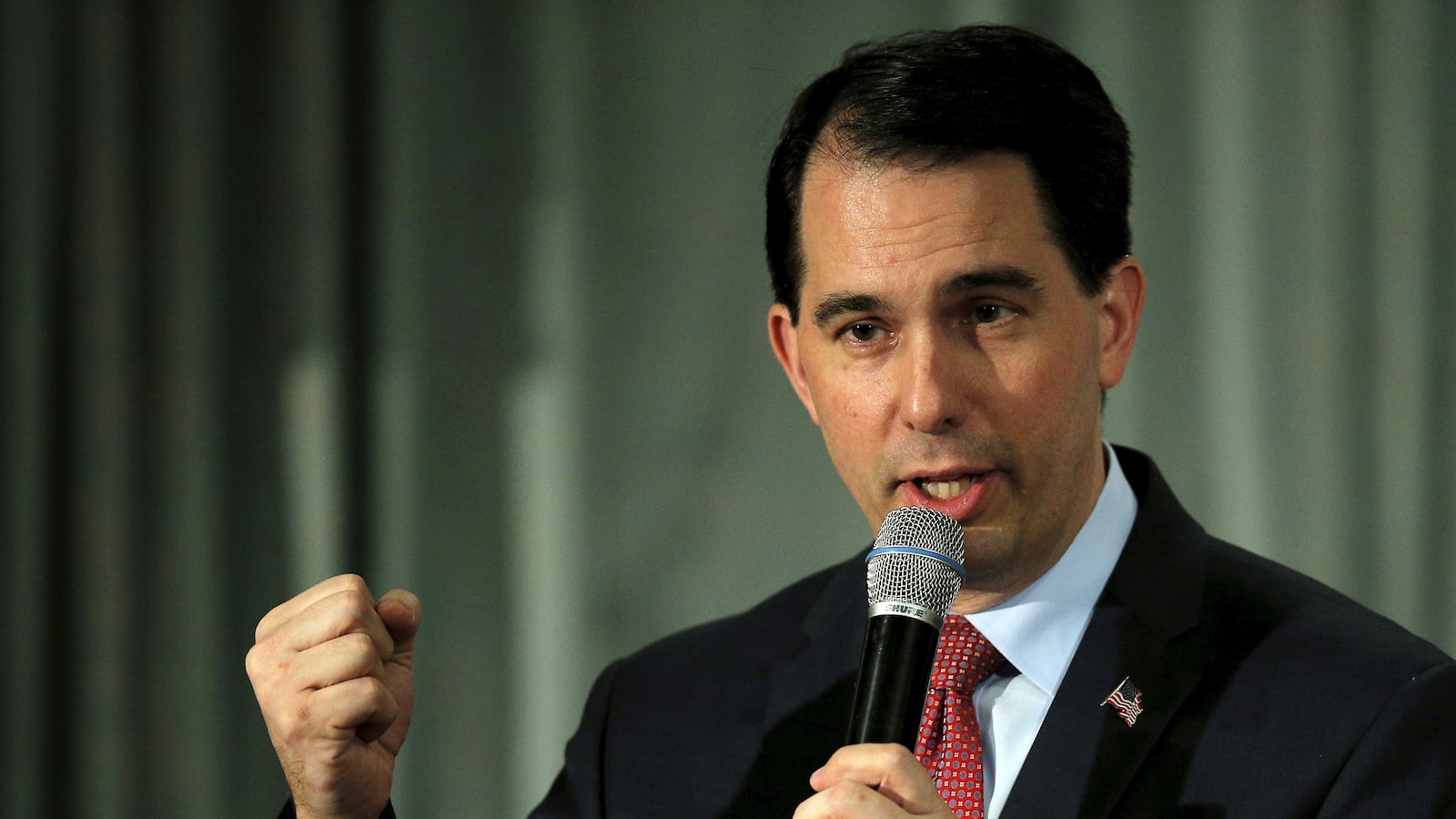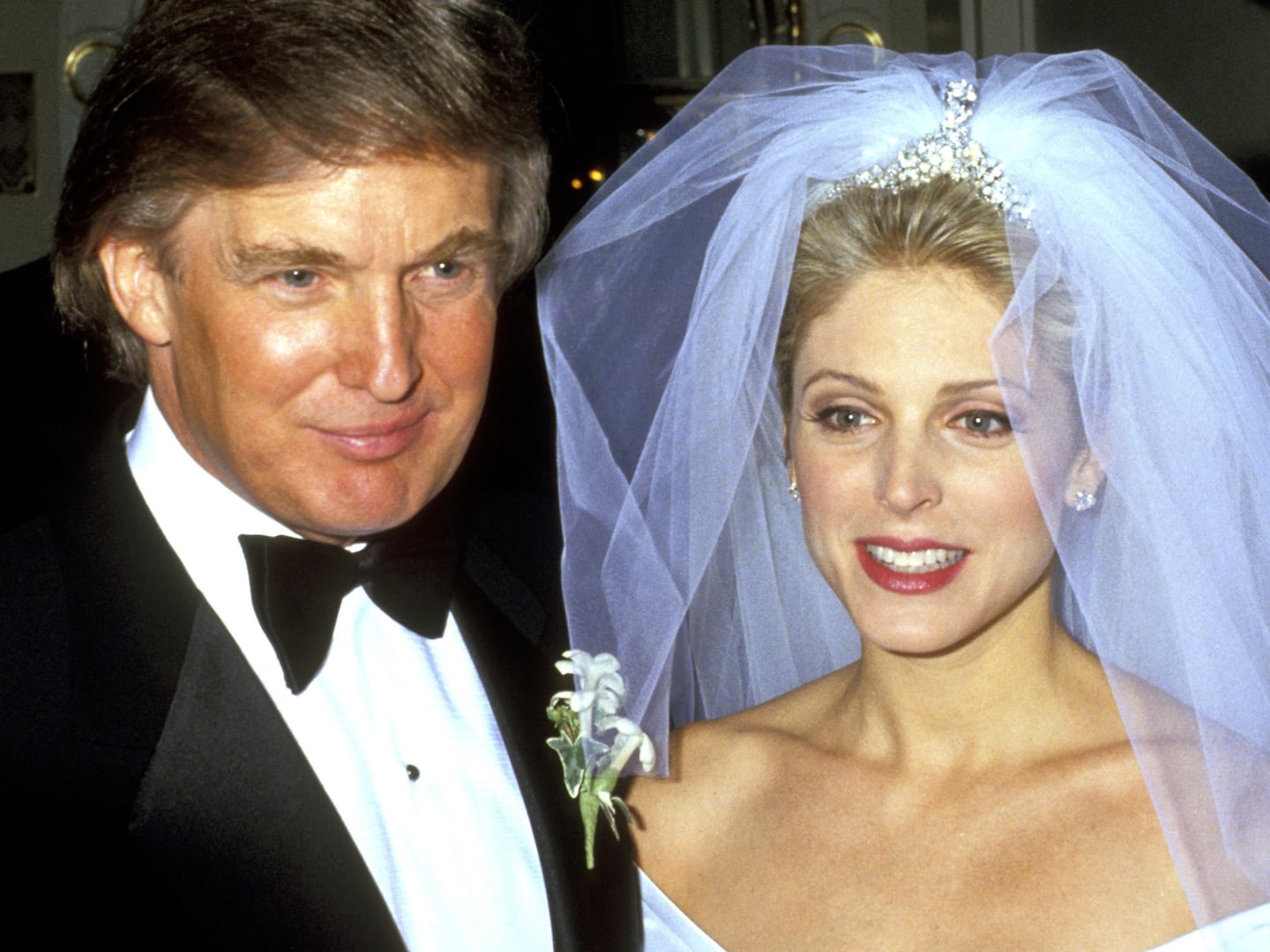Just like Jeb Bush and Hillary Clinton, old emails from the Scott Walker administration could potentially give him headaches, and it couldn’t be at a more awkward time.
As Walker prepares to formally roll out his presidential campaign next week, his team is drawing criticism for refusing to release emails sent about his current budget proposal—even drawing a lawsuit from a liberal group.
And in a presidential cycle dominated by issues of transparency, he can expect tough questions about the issue.
On Wednesday, The Cap Times reported that Walker’s team was involved in efforts to gut the state’s open-records law.
The effort, spearheaded by Republicans in the Wisconsin state legislature, drew massive outcry last week and was quickly scrapped.
But critics from across the ideological spectrum say the state’s open-records law isn’t totally out of the woods, and that the outcome of a lawsuit between Walker and his liberal opponents could still make the Badger State government less transparent.
Questions about open government in Wisconsin have been growing at least since February when the liberal Center for Media and Democracy reported that Walker’s budget proposal would change the mission statement of the University of Wisconsin system.
Walker’s team attributed the change to a “drafting error.”
Now, conservatives and liberals in Wisconsin disagree on whether that particular instance is important—but regardless, what happened next irked both sides of the partisan divide.
In response to Walker’s team, the Center filed an open-records request for communications between the governor’s office and members of the Department of Administration regarding the language changes.
A few months later, Walker’s assistant legal counsel, David Rabe, sent them a letter that included a PDF with 480 pages of records, as well as additional communications that the group hadn’t explicitly requested.
But Rabe noted not everything they requested was included for a number of reasons, including because of attorney-client privilege, because the governor’s office didn’t believe all the requested communications met the legal definition of “records,” and, most importantly, because the governor’s office believed disclosing some of the requested records would cause harm that outweighed the benefits of transparency.
Rabe argued that releasing the communications could “discourage frank internal discussion” and “inhibit the efficiency and efficacy” of employees putting together budget proposals.
If disclosure causes more harm than good, then the government doesn’t have to disclose, he wrote.
Brendan Fischer, the general counsel for the Center for Media and Democracy, the liberal group suing Walker, said Walker is using this as an excuse “to avoid accountability.”
“Wisconsin lawmakers have managed to develop policy for decades without a ‘deliberative process’ loophole in the open-records law and the sky certainly hasn't fallen,” said Fischer.
Walker’s team takes issue with Fischer’s characterization.
“While the Plaintiffs in the cases you cite claim we withheld documents under a deliberative process privilege, they are incorrect,” emailed Walker spokeswoman Laurel Patrick. “The materials withheld are protected by current law, and we will continue to fulfill open records requests pursuant to current law, as we have always done.”
Walker’s team is expected to file a brief on the lawsuit by July 17—just a few days after he announces his presidential campaign.
Fischer said that while this particular lawsuit focuses on the budget, a win for Walker could potentially set a precedent for lawmakers “to withhold any records that led to a policy decision.”
And the Center for Media and Democracy has found some conservative allies.
Rick Esenberg, president of the conservative/libertarian Wisconsin Institute for Law and Liberty, said this lawsuit has put him in the odd situation of rooting for a group from the left.
“This is dogs and cats living together on this issue,” he said.
He argued that Walker’s interpretation of the open-records law would allow “too much leeway under the balancing test” and make the state government less transparent.
“If we think it’s necessary to provide some additional operating room for people to prepare comments on drafts of policy, I think it needs to be done through a deliberative legislative process, with hearings and public input,” he said.
“It presents a pain in the ass for people, I get that,” Esenberg said. “But unfortunately under our open-records law—or fortunately, depending on how you see it—that’s gotta be produced, and if you don’t want it to be produced, then don’t write it down.”






